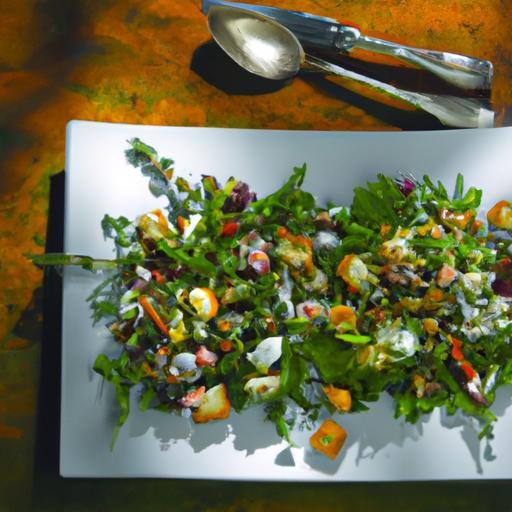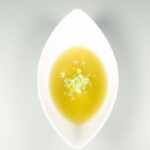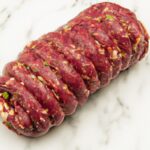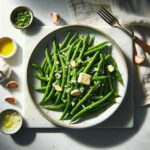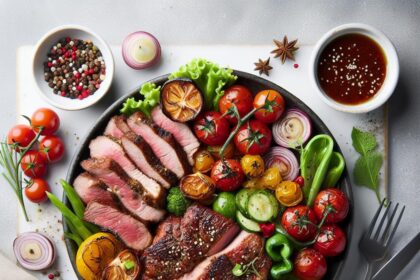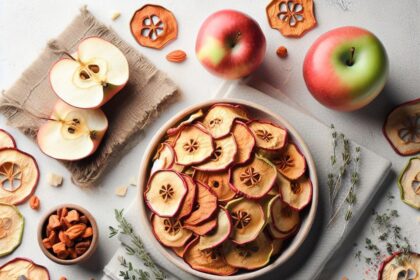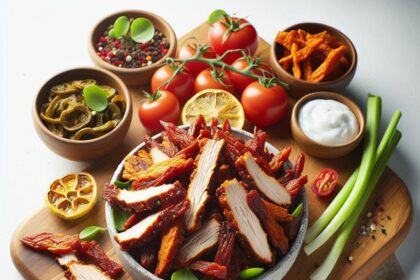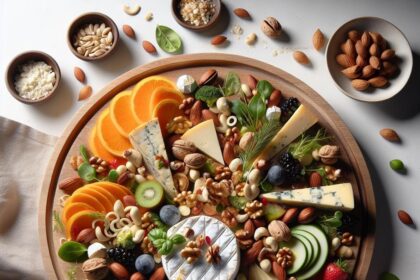In the aromatic world of cooking and healing, dried herbs serve as tiny time capsules-bursting with nature’s essence, ready to elevate your dishes or soothe your soul. But just how long do these fragrant treasures truly last? Beyond the pantry shelf and spice jar, there exists a subtle timeline that governs their potency, flavor, and magic. Understanding the lifespan of dried herbs isn’t just a matter of freshness; it’s the secret to unlocking their fullest potential every time you reach for that sprinkle of green goodness. Join us as we unravel the mysteries of herb timelines and discover how to keep your dried herbs vibrant, flavorful, and effective for as long as possible.
Factors That Influence the Potency and Flavor of Dried Herbs
Understanding the shelf life of dried herbs reveals how delicate flavors and aromas can transform over time. The potency and flavor of dried herbs diminish primarily due to exposure to light, heat, moisture, and air. When herbs are harvested, dried, and stored properly, their essential oils-responsible for vibrant taste and fragrance-remain intact longer. However, once exposed to fluctuating temperatures or humidity, these oils degrade faster, leading to muted or stale notes in your dishes.
Quality at purchase also matters; herbs that are dried too slowly or stored improperly before sale will start losing potency immediately. Crushed herbs lose freshness quicker than whole leaves because oils evaporate more readily. By understanding these factors, you can strategically plan how to use and store your herbs to enjoy their full flavor potential.
Best Practices for Storing Your Dried Herbs to Maximize Freshness
To maximize the vibrant flavor and aroma of your dried herbs, follow a few simple yet essential storage tips. Always use airtight containers-glass jars with tight-fitting lids are ideal-as they protect herbs from air exposure and moisture. Store these containers in a cool, dark cupboard away from heat sources like stoves or sunlight, which accelerate oil degradation.
Label jars with purchase dates to track freshness and avoid guesswork. Avoid plastic bags or containers that can trap moisture, and never store dried herbs above the refrigerator, where heat fluctuates heavily. Additionally, when spooning out herbs, use a dry spoon to prevent introducing moisture that hastens spoilage.

When to Replace Your Dried Herbs for Optimal Culinary Results
Knowing when to replace dried herbs is crucial for maintaining vibrant flavors in your cooking. Typically, dried herbs retain best potency for about 1 to 3 years, depending on the type and storage conditions. For example, delicate herbs like basil, coriander, and dill generally lose their essence after 6 to 12 months, while robust herbs such as rosemary, thyme, and oregano can last up to 3 years.
To test if your dried herbs are still flavorful, rub a small pinch between your fingers and inhale deeply. If the aroma is faint or absent, it’s time to replace your supply. Using stale herbs won’t harm your dish, but the vibrant taste and fragrance you crave will be missing. Refreshing your dried herbs regularly ensures every recipe shines with authentic, lively herbaceous notes.
Prep and Cook Time
- Preparation: 10 minutes (for sorting and storing)
- Storage Maintenance: Ongoing
Yield
Preserves freshness for up to 2 years (depending on herb type and storage)
Difficulty Level
Easy – Perfect for culinary enthusiasts and home cooks alike
Ingredients
- 1 cup dried basil leaves, whole or crushed
- 1 cup dried rosemary sprigs
- 1 cup dried thyme leaves
- Airtight glass jars, preferably amber or opaque
- Labels and marker pen for dating
Instructions
- Sort your dried herbs by type, inspecting for any moisture or discoloration beforehand.
- Transfer herbs into airtight glass jars, filling them loosely to avoid crushing essential oils prematurely.
- Seal jars tightly and place labels with acquisition or drying dates for easy tracking.
- Store jars in a cool, dark, and dry location-away from heat, light, and humidity.
- Check herbs every 3 to 6 months by gently rubbing a small quantity to assess aroma and potency.
- Replace herbs that smell faded or have lost their vibrant color to maintain culinary excellence.
Chef’s Notes
- Whole dried herbs last longer than crushed or powdered forms; crush only before use to release fresh flavors.
- If herbs accidentally get damp, spread them on a baking sheet and dry at the lowest oven setting before storing.
- Freeze herbs if you anticipate long-term storage; freezing locks in potency but changes texture and color.
- For frequent use, keep a small spice grinder handy to freshly powder whole herbs as needed.
Serving Suggestions
Dried herbs shine brightest when added during cooking or as finishing touches. Toss dried thyme into hearty stews, sprinkle oregano over roasted vegetables, or steep basil in infused olive oils. Garnish your dishes with freshly ground herbs from your well-stored collection to awaken all senses with fresh, aromatic flair.
| Herb | Optimal Freshness | Typical Shelf Life | Best Storage |
|---|---|---|---|
| Basil | 6-12 months | 1 year | Airtight jar, dark cool spot |
| Rosemary | 2 years | 3 years | Airtight jar, cool & dark |
| Thyme | 1-2 years | 3 years | Opaque jar, dry location |
Explore more on maintaining the freshness of your herbs in our Preserving Fresh Herbs guide. For scientific insights on herb potency, visit the University of Minnesota Extension.
Q&A
Q&A: Herb Timelines – How Long Do Dried Herbs Really Last?
Q1: Why does the shelf life of dried herbs matter?
A1: Dried herbs are flavor-packed treasure chests, but over time, their vibrant taste and aroma fade like a sunset melting into dusk. Knowing how long they last ensures your dishes burst with freshness rather than muted, dusty notes.
Q2: How long do dried herbs typically stay fresh?
A2: Most dried herbs keep their peak magic for about 1 to 3 years. After that, their powers wane-flavors dull, aromas diminish, and dishes may taste a bit… meh. The clock starts ticking the moment they’re dried and jarred.
Q3: Are all dried herbs created equal in longevity?
A3: Not quite! Leafy herbs like basil and oregano tend to hang around flavorful for up to 1-3 years. Woody herbs-think rosemary and thyme-often last a bit longer, flirting with freshness beyond 3 years. Ground herbs? They age faster, often best used within 6 months to a year.
Q4: How can I tell if my dried herbs have expired?
A4: Close your eyes and give them a sniff. If your dried herbs smell like cardboard or just plain “meh,” it’s time to refresh your stash. Visual inspection helps too-if they’re faded to a dull brown or have clumps of moisture, toss them out.
Q5: What’s the secret to making dried herbs last longer?
A5: Keep those herbs in a cool, dark, dry sanctuary-away from sunlight, heat, and humidity. Airtight containers are their armor against freshness thieves like air and moisture. And whatever you do, avoid storing them above your stove where heat plays havoc.
Q6: Can expired dried herbs be harmful?
A6: Old dried herbs won’t stage a food-safety rebellion, but they might cause a flavor fiasco in your cooking. If they’ve developed mold or off smells, definitely discard them to keep your kitchen safe and tasty.
Q7: Is it worth harvesting homegrown herbs and drying them myself?
A7: Absolutely! Homegrown herbs, dried at the peak of flavor, can offer superior taste and knowledge of their freshness timeline. Plus, it’s a satisfying way to extend your garden’s bounty into the colder months.
Q8: How do dried herbs compare to fresh herbs in terms of longevity?
A8: Fresh herbs are like fleeting stars-bursting with bright flavor but short lived. Dried herbs are more like old tomes-less vibrant but lasting much longer in your kitchen library.
Q9: Can I mix new herbs with old ones to stretch the flavor?
A9: Sure, but beware-the old herbs might drown the freshness of the new ones. It’s best to use up old herbs in baking, slow-cooked dishes, or blends where subtlety is less critical.
Q10: What’s the final word on herb timelines?
A10: Dried herbs are flavorful companions, but like any good companion, they have their prime years. Respect their timeline, store them right, sniff often, and they’ll keep your culinary creations singing for a long time.
Wrapping Up
As the fragrant whispers of dried herbs continue to grace our kitchens and recipes, understanding their true lifespan becomes a key ingredient in culinary success. While these leafy treasures may seem timeless, their flavors and potency quietly wane with each passing month. By keeping an eye on those timelines, you not only ensure vibrant taste and aroma but also honor the careful journey from garden to jar. So next time you reach for that sprinkle of oregano or dash of thyme, remember: freshness is the secret spice that transforms a dish from ordinary to unforgettable. Happy seasoning, and may your herbs always be as lively as your meals!
